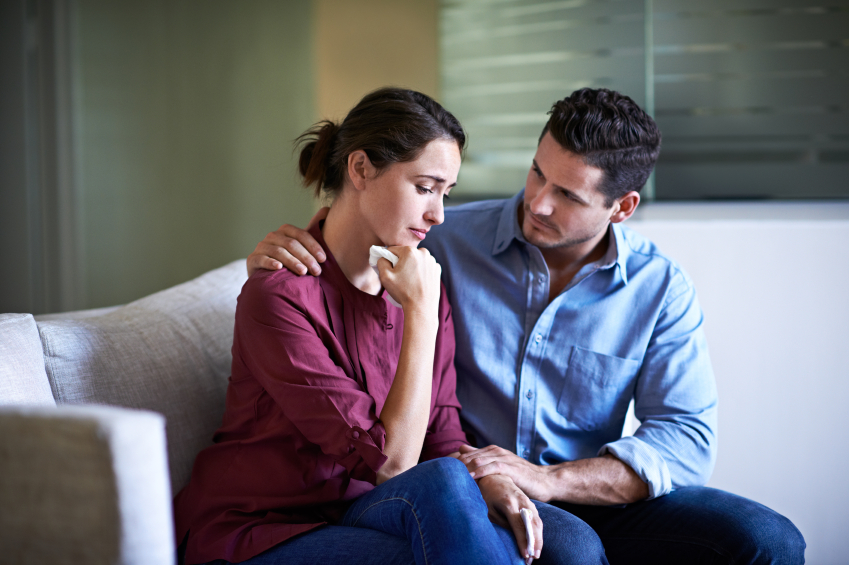How Eating Disorders Impact Romantic Relationships

(This content is being used for illustrative purposes only; any person depicted in the content is a model)
Eating disorders can affect anyone at any stage of life. While often eating disorders conjure images of young adolescent females, adults can and do have eating disorders, and many adults who have them are in partnered relationships. That’s why researchers have recently sought out to better understand how eating disorder impact romantic relationships and spouses.
As someone who is very familiar with eating disorders, both from personal experience and through research, I will admit that there is little information online that really explains the impact eating disorders can have on relationships. Trust me, eating disorders are no joke, and just like any mental illness or addiction, they affect both you and the people around you.
When it comes to a romantic relationship, eating disorders can have a negative effect. Eating disorders like anorexia and bulimia result in a constant rumination on food. Food is talked about and thought about daily, and self-esteem is at an all-time low. So, with that being said, let’s get to the bottom of this.
How do eating disorders impact relationships?
Romantic partners of those struggling with an eating disorder often report feeling diminished emotional intimacy. This is true for so many reasons. Eating disorders can drain a person of their mental and physical energy, leaving little room for intimacy. There can be an increased feeling of distance felt in the relationship as their partners’ slips deeper and deeper into their eating disorder.
If you suffer from an eating disorder, you will know that they feature an intense preoccupation with food, weight, and shape. It can be difficult to think of anything else. People with eating disorders often refrain from going to social events with food involved because they want to ensure that they are able to completely control their food intake or avoid being watched while eating.
Sexually, eating disorders can take a huge toll. Eating disorders that result in major weight gain can often cause Amenorrhea or loss of the menstrual cycle. This is caused by low body weight and calorie insufficiency. This loss of period is also due to hormonal imbalances due to not eating which creates a decrease in sex drive. In addition, body shame and body image insecurities can be roadblocks to sexual intimacy. In romantic relationships, partners struggle to understand these implications.
Essentially, eating disorders can be a central and preoccupying component that affects interpersonal relationships.
So, how can partners help?
While each relationship is difficult, partners can play a huge role in the recovery process. Below is a list of four ways a partner can help someone overcome an eating disorder:
- Educate yourself
Education is power. Nowadays, there is so much information out there about eating disorders. Eating disorders are complex and confusing to partners. Researching eating disorders can help you understand what an eating disorder truly is and clear up any misconceptions you may have. It can be difficult for someone suffering from an eating disorder to express how they feel and why they do the things they do. Sometimes they are in denial or do not know how severe their condition is. As a partner, you need to be the voice of reason and help understand what this illness really entails.
- Support your partner
Supporting your partner who has an eating disorder can be one of the most important things you can do. Instead of fear of pushing your partner to eat, try encouraging them. Tell them how much you love them and are there throughout their journey. Do not be afraid if they withdraw or are fearful because people with eating disorders need time to process things.
- Support Groups
Support groups are an excellent way for your partner to get professional help with their eating disorder without all the pressure of using traditional resources. Therapists, treatment centers, and organizations often run groups to encourage each other on their recovery. Eating Disorders Anonymous is a 12-step fellowship approach to eating disorders. Participating in these groups can help you understand what your partner is going through.
- Therapy
Couples therapy and group therapy are great resources for both you and your partner to understand the complexities and issues involved when being in a relationship with someone with an eating disorder. Your partner would have to be aware of their eating disorder and open to therapy, but once they are, therapy can be a great tool in helping them overcome their eating disorder.
Despite the complexities of eating disorders and their potential setbacks, it is possible to have a healthy relationship with someone who is recovering from an eating disorder. It will be difficult, and they must be willing to open themselves up to healing. It may even be a good idea to consider a treatment program that specializes in eating disorder treatment. If you or someone you love is struggling with substance abuse or addiction, please call toll-free 1-800-777-9588.
